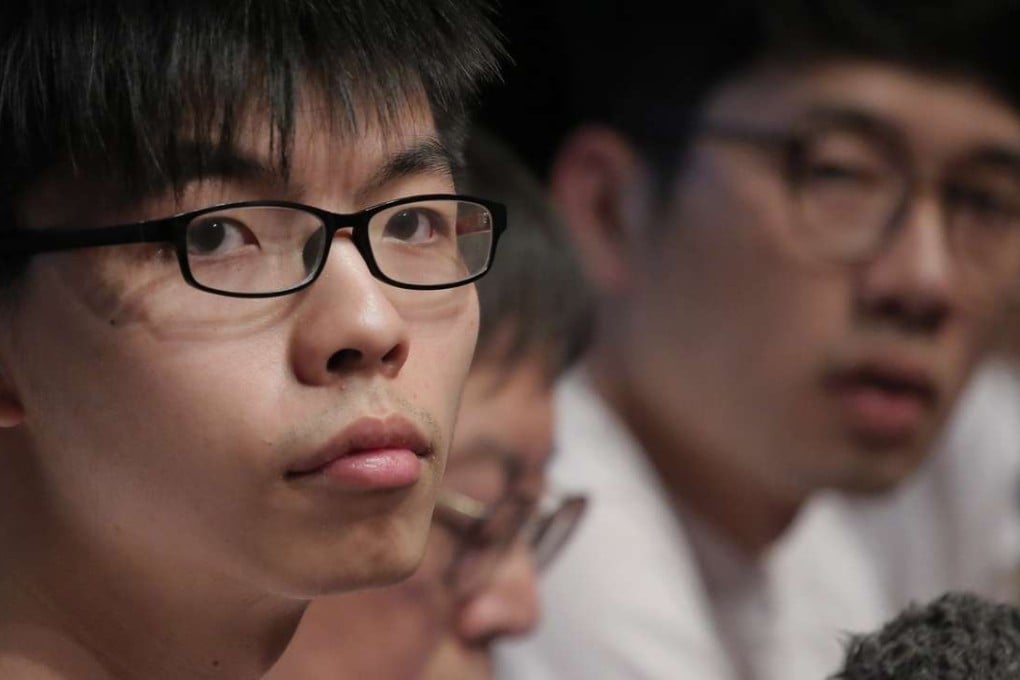As I see it | Baptism of fire for Joshua Wong and his nascent political party

“Drop dead, traitors!” wrote one Facebook user. “Stop swindling money from gullible supporters,” said another.
Further down the comment thread, the Photoshopped picture of a young man with a noose tied around his neck received dozens of likes. “Your corpse will rot on the street and we shall celebrate!” the caption read.
The lynching victim depicted in the picture was Joshua Wong Chi-fung, the once-idolised student leader who, at the tender age of 14, led tens of thousands of citizens to thwart the government’s attempt to introduce a patriotic education programme.
The darling of foreign news media appeared on the cover of Time magazine’s Asia edition and was named one of Fortune magazine’s top 10 world leaders in 2015 alongside Pope Francis and Apple CEO Tim Cook. There were even whispers that he should be nominated for a Nobel Peace Prize.

But what a difference a year makes. Today, he is the prime target of what amounts to cyberbullying.
